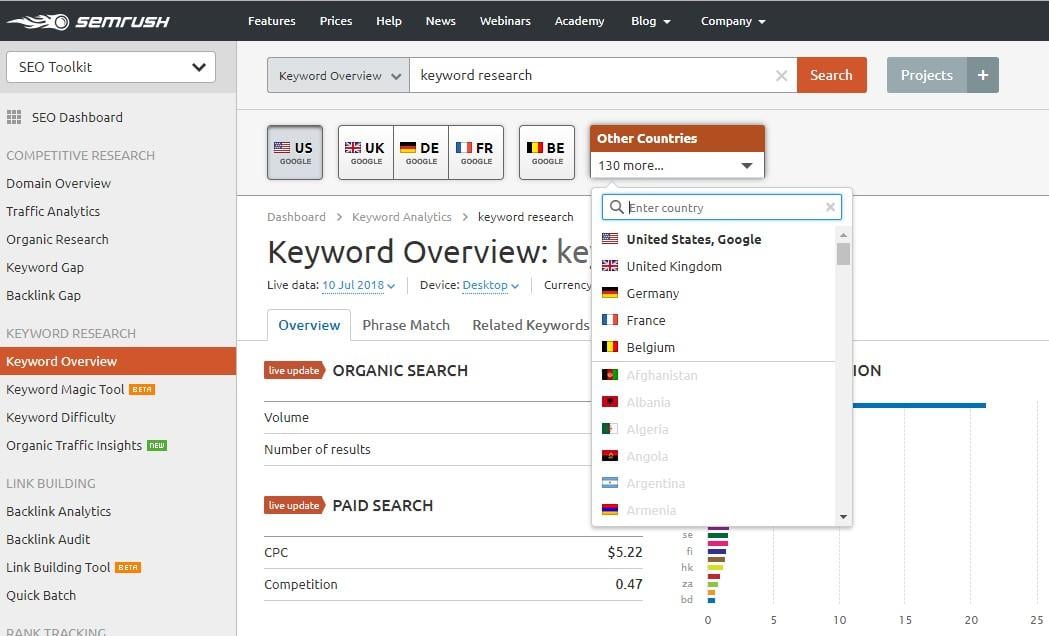Navigating the Digital Landscape: Leveraging International Search Engine Optimization for Cross-Border Success
In today's interconnected electronic globe, businesses are increasingly looking past borders to touch into international markets. The intricacy of navigating the electronic landscape on a worldwide range demands a nuanced approach, from understanding the basics of International SEO to carrying out geotargeting and multilingual keyword phrase approaches.
Comprehending International SEO Fundamentals
Browsing the intricacies of global search engine optimization requires a solid understanding of fundamental principles to effectively broaden on-line visibility throughout boundaries. One crucial facet of global SEO is comprehending the importance of localization. This involves customizing web site content to suit the linguistic, social, and industrial distinctions of target markets. Search phrases must be not only translated however also adjusted to mirror just how users in various regions search for info.
In addition, having a clear understanding of geo-targeting is necessary. This entails indicating to online search engine the particular nations or areas an internet site is targeting. Applying hreflang tags is one means to communicate this info, guaranteeing that the proper version of a webpage appears in the search results for an individual in a particular area.
In addition, comprehending the effect of local internet search engine and social media platforms is essential for international SEO success. For example, while Google is dominant in numerous regions, countries like China have their own search engines like Baidu, calling for tailored methods for each platform to make the most of online visibility.

Targeting Multilingual Keyword Phrase Approaches
Creating multilingual key words approaches is important for efficiently reaching varied worldwide audiences and taking full advantage of on the internet visibility across different linguistic areas. When targeting multilingual key words techniques, it is vital to perform extensive study to recognize the specific search terms and expressions utilized by the target audience in each etymological region. This involves not only converting key phrases yet likewise considering social nuances, local dialects, and search patterns special per target audience.
To develop an effective multilingual keyword strategy, it is very important to focus on significance and search intent. Key phrases must straighten with the content on the site and resonate with the social context of the target market. Utilizing tools such as Google Keyword Coordinator, SEMrush, or Ahrefs can assist identify high-performing key phrases in different languages and examine their search quantity and competition degree.
Additionally, tracking and examining the efficiency of multilingual key phrases routinely is vital for maximizing and refining the method over time. By continuously adapting to changes in search actions and trends, businesses can boost their online presence and draw in even more worldwide web traffic to their web sites.
Applying Geotargeting and Hreflang Tags
When aiming to improve international search engine optimization techniques, integrating geotargeting and hreflang tags is critical for enhancing site presence throughout various regions. Geotargeting includes customizing content to particular places, making sure that users in various locations get relevant info. By carrying out geotargeting, businesses can boost their neighborhood search rankings and attract region-specific web traffic.

Optimizing Website Framework for Global Presence
To better enhance global SEO methods beyond geotargeting and hreflang tags, optimizing the internet site framework is important for accomplishing worldwide visibility and optimizing reach throughout various regions. A well-structured site not only enhances individual experience but likewise promotes search engine crawlers in recognizing the material and context of the site.
Additionally, producing language-specific subdirectories or subdomains can assist internet search engine provide the ideal variation of the internet site to customers based on their language preferences, even more improving the general user experience. Additionally, enhancing URL structures to include appropriate keyword phrases and geotargeted terms can boost the website's exposure in various regions. By structuring the website efficiently for international audiences, businesses can boost their opportunities of drawing in global traffic and increasing their reach across borders.

Monitoring and Examining Cross-Border Performance
Reliable surveillance and studying of cross-border efficiency is vital for assessing the success of international search engine optimization strategies and determining possibilities for renovation in international reach and visibility. By closely tracking essential performance indications (KPIs) across different markets, services can acquire important understandings right into the efficiency of their cross-border SEO initiatives. Keeping an eye image source on metrics such as organic traffic, keyword positions, conversion rates, and bounce rates can supply an extensive view of exactly how well a website is executing in different regions.
By contrasting efficiency across various countries, regions, or languages, companies can determine effective methods and localize content to better provide to particular target audiences (International SEO). Regular analysis of SEO performance on a global range guarantees that firms can adapt their techniques swiftly to utilize on arising possibilities and maintain a competitive edge in international markets.
Final Thought
Finally, international search engine optimization plays a crucial duty in accomplishing cross-border success by enhancing web sites for international exposure, targeting multilingual key phrase techniques, applying geotargeting and hreflang tags, and checking cross-border performance. By comprehending the principles of worldwide SEO and optimizing web site structures appropriately, organizations can successfully get to and engage with their target market throughout various regions and languages. This critical strategy is crucial for increasing market reach and driving on-line development in today's electronic landscape.